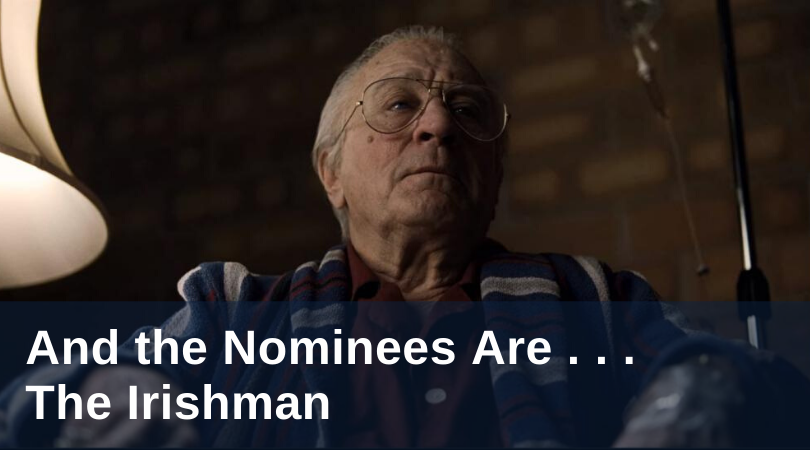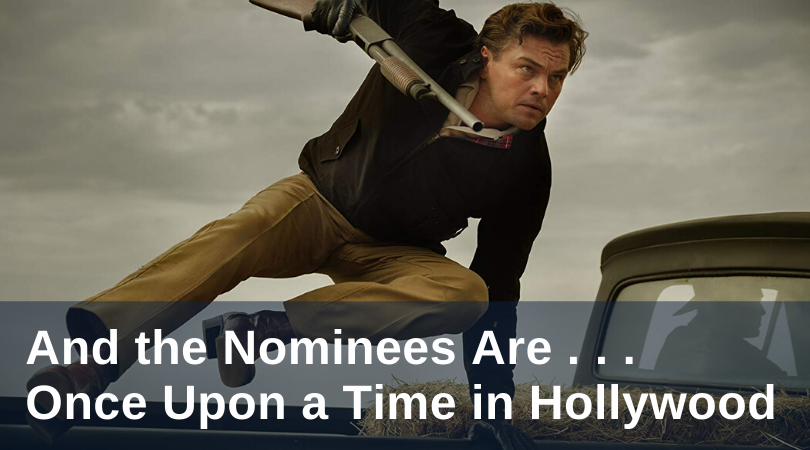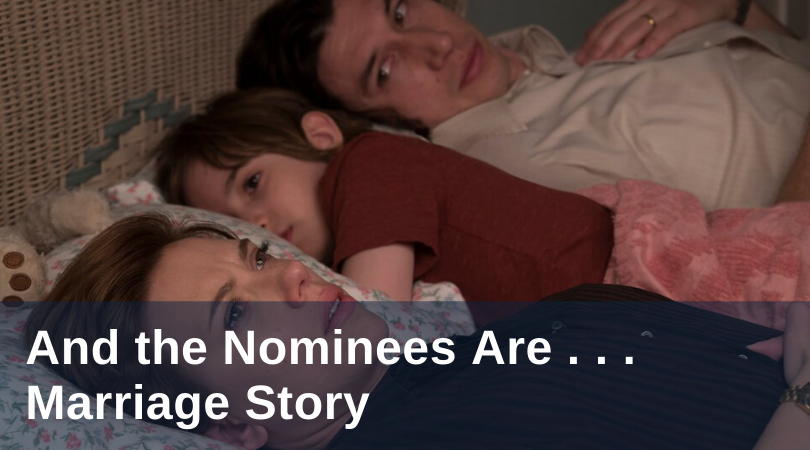Boomer film buffs might see Martin Scorsese’s The Irishman as a kind of summative look back at the mafia culture depicted by Hollywood over the last few decades. But this film’s conclusion, in which an aged hitman attempts to make a genuine confession and find forgiveness with the aid of a priest, makes it a cautionary tale for our times.
Topics: Academy Awards, Best Picture nominees, Oscars, The Irishman, Martin Scorsese, good and evil
And the Nominees Are . . . Once Upon a Time in Hollywood
Editorial Note: The following is an excerpt from an essay entitled Once Upon a Time of Violence, originally published at Church Life Journal on September 9, 2019.
Given the large number of mass shootings over the past 20 years, and increase in the amount of extremist ideology advocating for violence being spewed online, a new [Quentin] Tarantino film, especially one about one of the most famous and grisly murders in American history [the 1969 murder of actress Sharon Tate, perpetrated by followers of Charles Manson], seems a good occasion for reviewing our moral and theological attitudes toward media violence.
Topics: Academy Awards, Best Picture nominees, Oscars, Quentin Tarantino, Once Upon a Time in Hollywood
Editorial Note: This review contains spoilers.
As I approached my viewing of Joker, I knew that it was bound to be a unique and divisive experience. One need only glance at Rotten Tomatoes to see that this film drew reactions on all sides of the critical spectrum: one top critic called it “brilliant and unforgettable;” another “bleak and juvenile.”
Topics: Culture, Academy Awards, Best Picture nominees, Oscars, Joker, truth
Editorial Note: The following is an excerpt from an essay entitled A Story of Divorce as Self-Realization originally published by Church Life Journal on January 13, 2020. This review contains spoilers.
I cannot stop thinking about Noah Baumbach’s film, Marriage Story, starring Adam Driver as Charlie, and Scarlett Johansson as his soon to be ex-wife Nichole. Real marriages, marriages of equals that have lasted more than a handful of years, not sitcom marriages played for laughs, are rarely given this much attention on the silver screen. It is perhaps difficult to capture the little moments that make up a shared life, but Baumbach captures them beautifully. Here is Nichole cutting Charlie’s hair. Here is Charlie cooking her dinner, or opening up the blankets so their son, Henry, can be comforted after a bad dream.
In a country where a million people file for divorce every year there are surprisingly few films about it in which neither partner gets turned into a cartoon villain or quickly written out of the script. In Marriage Story there are no villains, just two very imperfect humans struggling to find their “aliveness” and a sense of worth. . . .
Topics: Culture, Academy Awards, divorce, Best Picture nominees, marriage, Oscars, Marriage Story
This week, the McGrath Institute Blog is going to the movies, in anticipation of the 92nd Annual Academy Awards, which will air this Sunday, February 9. Interest in awards ceremonies, especially the Oscars, has waned in recent years, as indicated by the downward trend in the ratings. Hollywood politics impact which films and film-makers are nominated and which ones are snubbed, professional critics and filmgoers alike rightly point out the lack of diverse representation of women and people of color among the nominees, and for a Christian, the general culture surrounding film-making in Hollywood is deeply problematic.
So why bring to light what so often dwells in darkness?
Because millions of people still turn to movies for deeply human stories told in compelling ways, stories that—despite their often problematic origins—largely focus on Christian themes like good vs. evil, the search for redemption, the need for conversion, and the transforming power of self-giving love.
Topics: Culture, Academy Awards, Best Picture nominees, Oscars






